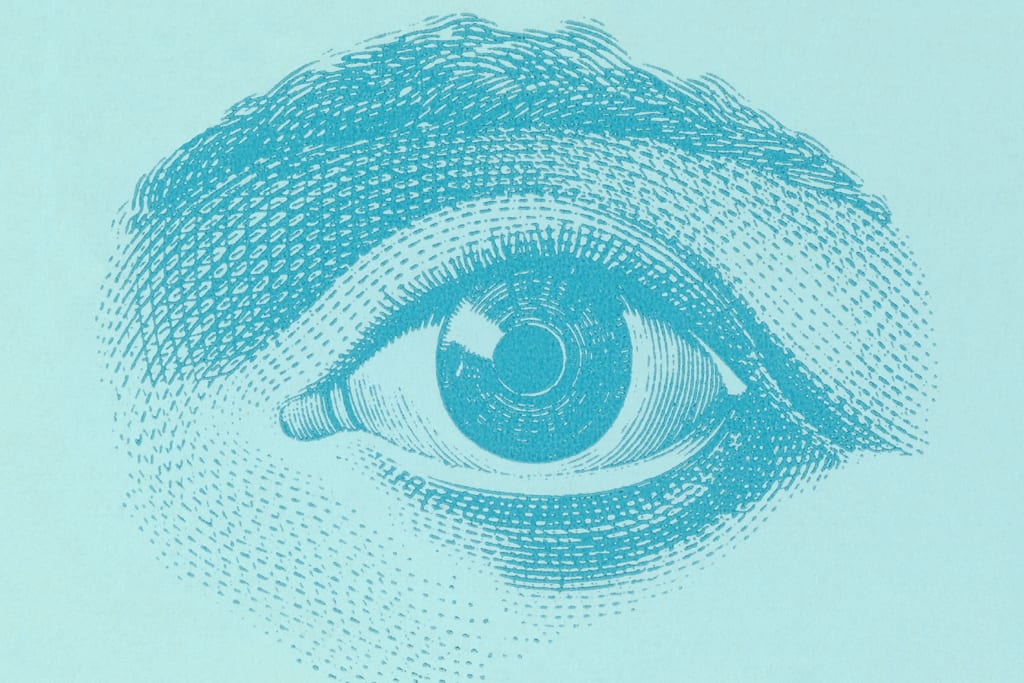7 expert ways to look after your eyes
 Do you find your eyes dry, tired and, worst of all, twitchy after a long day? Many people suffer from eye fatigue due to their jobs and lifestyle choices, like checking their Instagram every day, all day. Guilty? Follow our lead and find out how to look after your eyes for the long run.
Do you find your eyes dry, tired and, worst of all, twitchy after a long day? Many people suffer from eye fatigue due to their jobs and lifestyle choices, like checking their Instagram every day, all day. Guilty? Follow our lead and find out how to look after your eyes for the long run.
1. Visit the optician
Some people hit their 40s without ever having had a sight test because they’ve never needed glasses. But it’s at this age when presbyopia develops and we find it more difficult to focus on objects near to us. People tend to buy reading glasses in shops without a sight test. It’s an issue as detecting eye disease at this age is important. A sight test checks for diseases such as glaucoma (see point 6), which doesn’t have symptoms early on.
2. Be vigilant to changes
Acting on the smallest changes in your vision could save your sight. Straight lines looking distorted is a classic sign of age-related macular degeneration, (AMD; see point 5), the leading cause of blindness. It’s treatable, but progresses rapidly, so needs early diagnosis. Do this test regularly on both eyes: cover one eye, look at a vertical line – graph paper’s ideal. Blurred vision may be a sign of cataract (see point 7), while missing bits of side vision may be glaucoma.
3. Minimise diabetes risk
By 2025, some 5 million Brits will have diabetes. Most will be type 2, due to the rise in overweight and obese people. Diabetic retinopathy occurs when high blood sugar levels damage the cells at the back of the eye (retina). To cut your diabetes risk, adopt a diet low in fat, salt and sugar, and high in fibre, fruit and veg; lose weight if needed; get active for 30 minutes, at least five times a week. If you’re diabetic, have an annual eye test.
4. Know your gene risk
Glaucoma occurs when the pressure of fluid inside the eye increases, due to an obstruction, narrowing vision. This happens so slowly you may not notice until it’s too late. Most cases are picked up during a sight test. If you’ve a sibling or parent with glaucoma the sight test is free; get an annual test if this applies and you’re over 40. Glaucoma is a leading cause of blindness, and early treatment with eye drops can stop it getting worse, but can’t reverse existing damage.
5. Adjust your diet
Free-radical fighting antioxidants, such as lutein and zeaxanthin, reduce AMD risk and can help with eye health. Both are found in dark green leafy veg, such as kale, spinach, chard and broccoli; omega-3s found in oily fish, are also useful. Taking supplements may help alongside a healthy diet.
6. Wear contacts safely
Many contact lens wearers ignore the safety rules. Over-wear robs the cornea (the transparent front of the eye) of oxygen, weakening the integrity of the surface cells and increasing risk of infection. Some people swim in their contacts, but bacteria and other nasties can get trapped under them, which can lead to a corneal ulcer. Caught early an ulcer can be treated with antibiotic eye drops, but it can spread inside the eye if treatment is delayed. I suggest investing in a pair of prescription goggles.
7. Avoid screen strain
Staring at a screen all day means you don’t blink as frequently, leading to dry eyes and irritation. Take regular breaks and adapt your desk. To reduce glare, position your computer away from direct sunlight and keep interior lighting subtle by using fewer light bulbs or fluorescent tubes. An anti-glare screen on your monitor may help, as will anti-reflective coating on your lenses, if you wear spectacles.
 Mr Simon Kelly is a consultant ophthalmic surgeon at the Royal Bolton Hospital, Lancashire. He is active with the Royal College of Ophthalmologists to improve the quality and safety of eye care.
Mr Simon Kelly is a consultant ophthalmic surgeon at the Royal Bolton Hospital, Lancashire. He is active with the Royal College of Ophthalmologists to improve the quality and safety of eye care.







